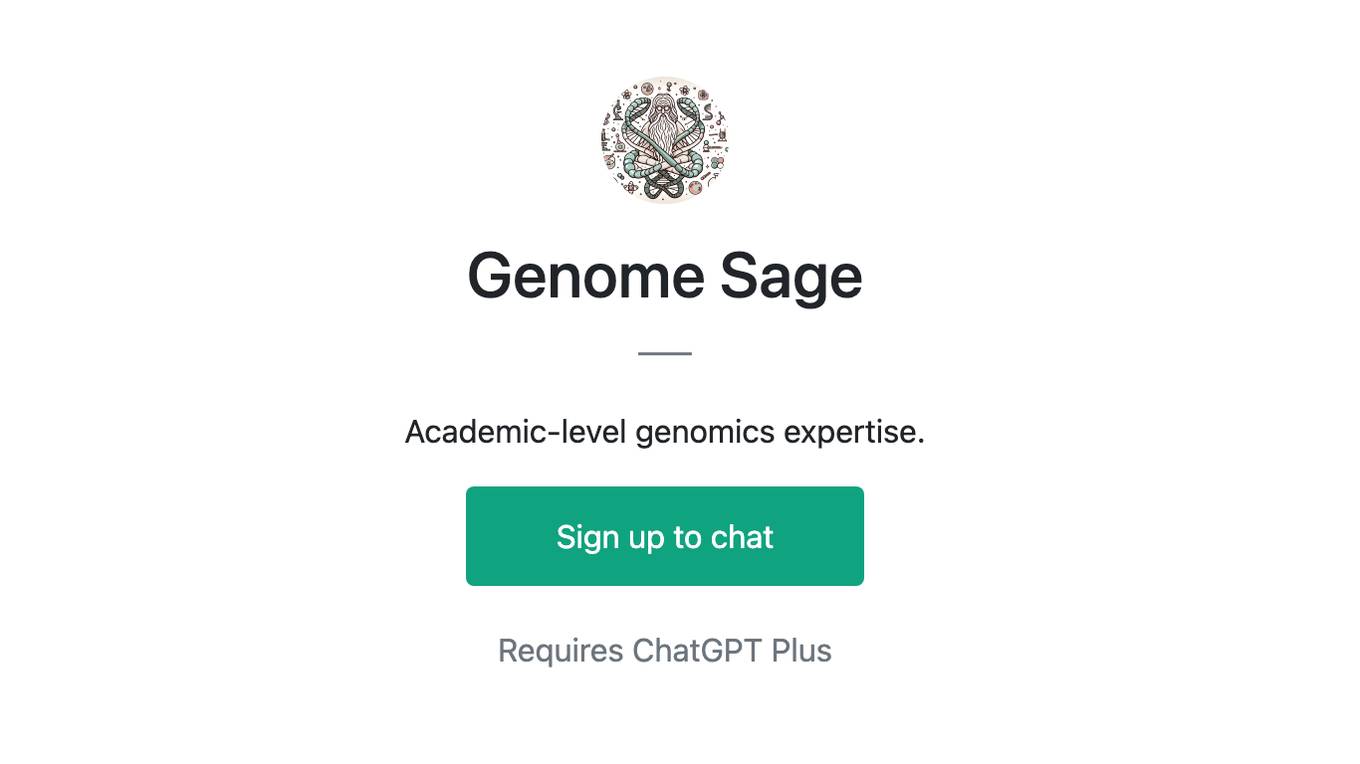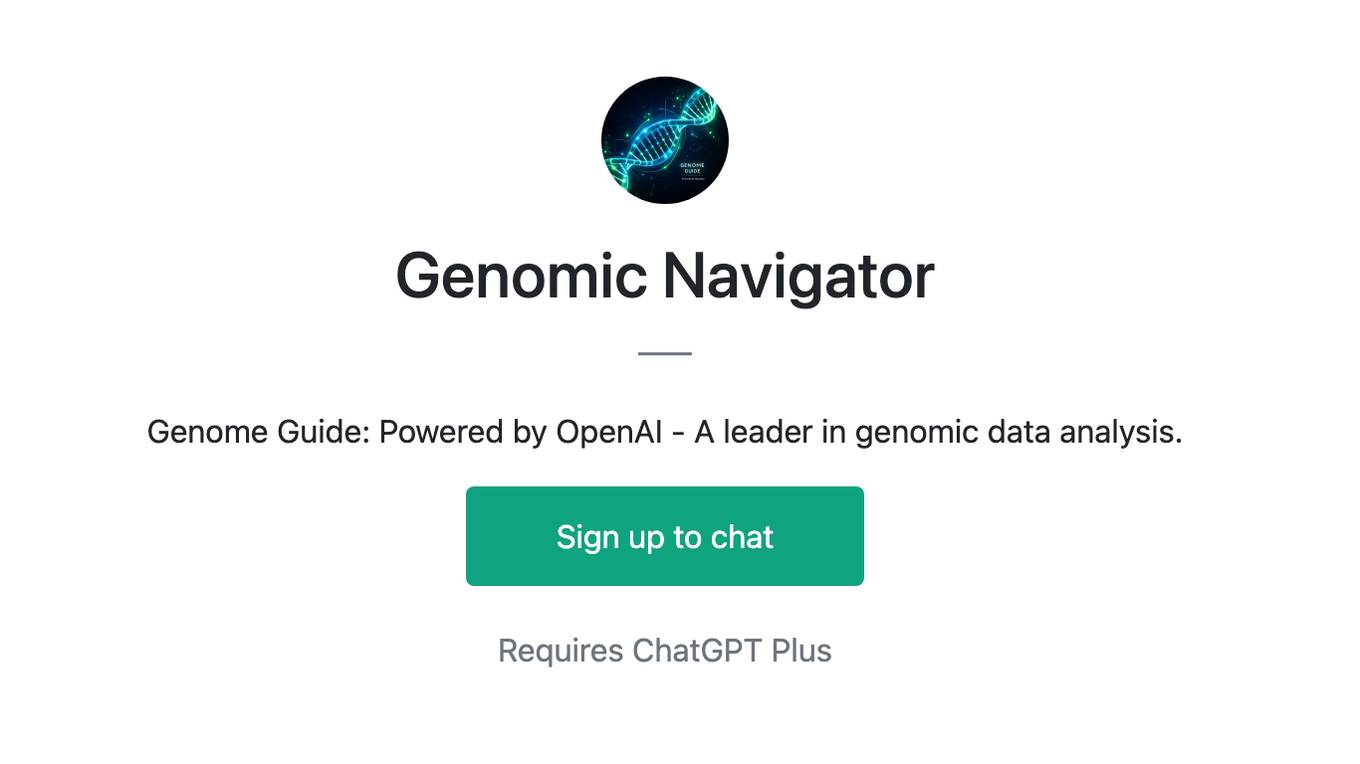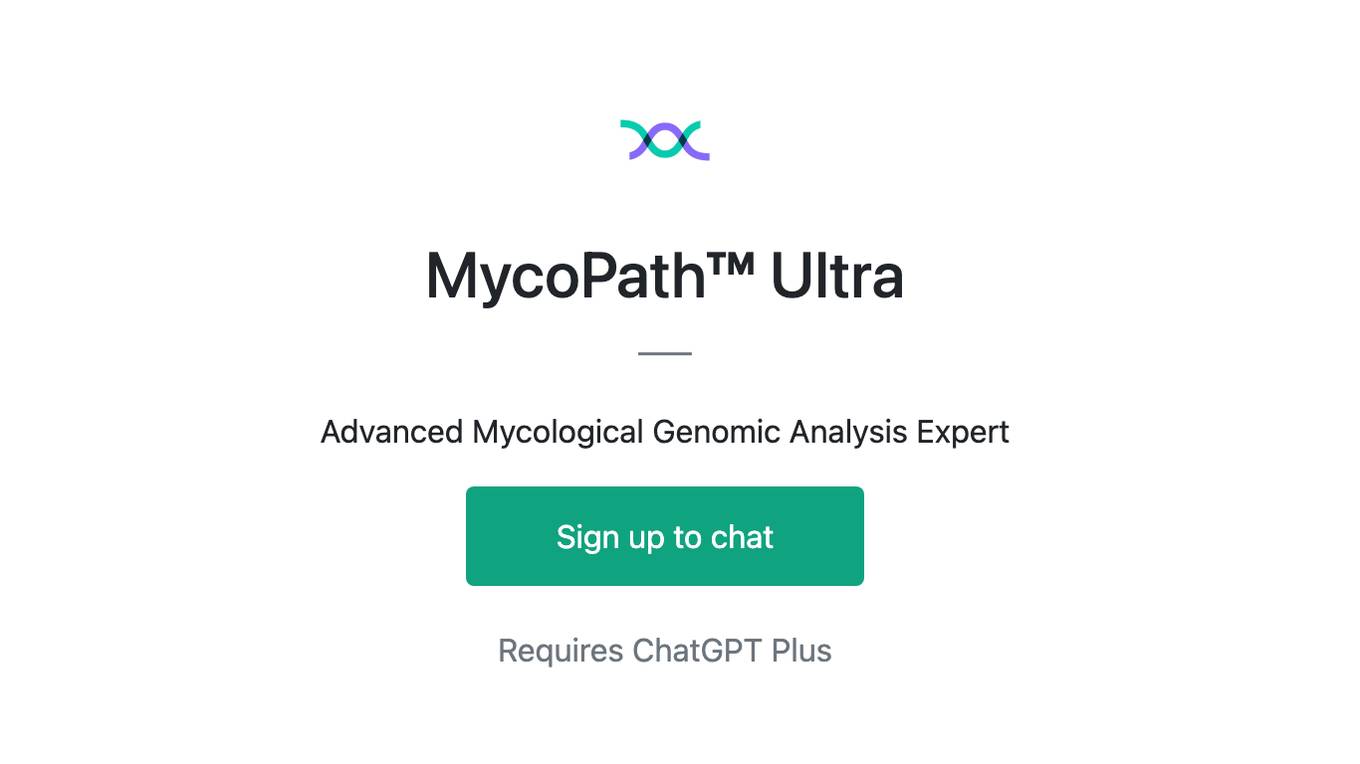Best AI tools for< Genome Engineering >
1 - AI tool Sites
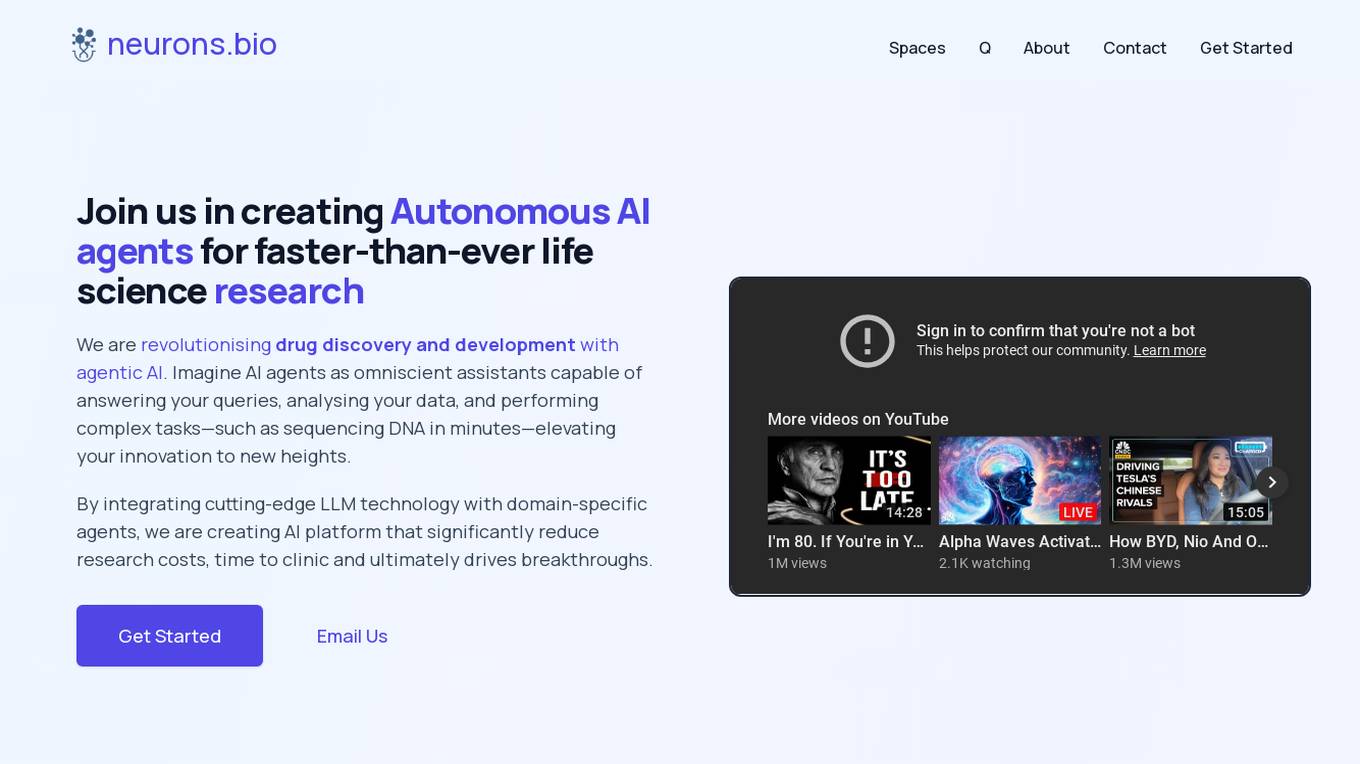
neurons.bio
neurons.bio is an AI application that offers a unique collection of over 100 AI agents designed for drug development, medicine, and life science research. These agents perform specific tasks efficiently, retrieve data from various sources, and provide insights to accelerate research processes. The platform aims to revolutionize drug discovery and development by integrating cutting-edge LLM technology with domain-specific agents, reducing research costs and time to clinic.
1 - Open Source AI Tools
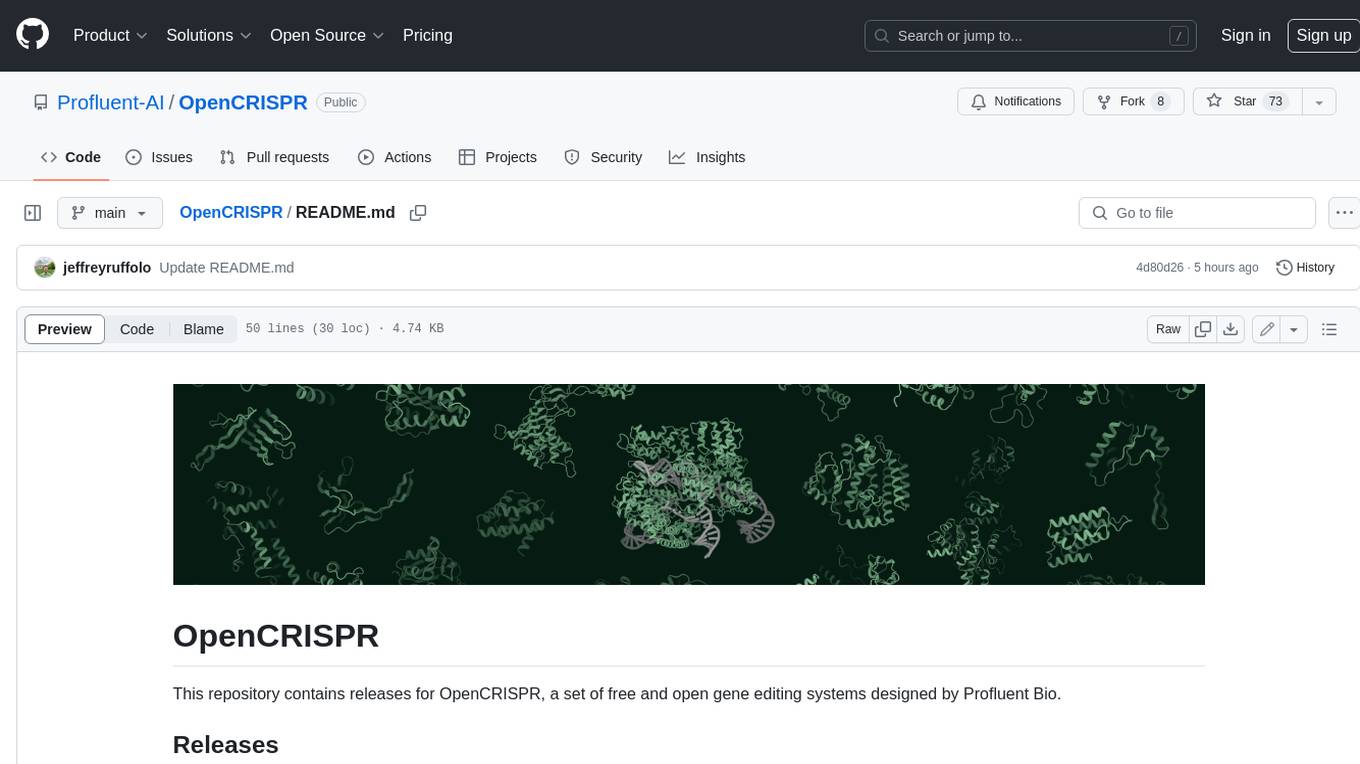
OpenCRISPR
OpenCRISPR is a set of free and open gene editing systems designed by Profluent Bio. The OpenCRISPR-1 protein maintains the prototypical architecture of a Type II Cas9 nuclease but is hundreds of mutations away from SpCas9 or any other known natural CRISPR-associated protein. You can view OpenCRISPR-1 as a drop-in replacement for many protocols that need a cas9-like protein with an NGG PAM and you can even use it with canonical SpCas9 gRNAs. OpenCRISPR-1 can be fused in a deactivated or nickase format for next generation gene editing techniques like base, prime, or epigenome editing.
6 - OpenAI Gpts
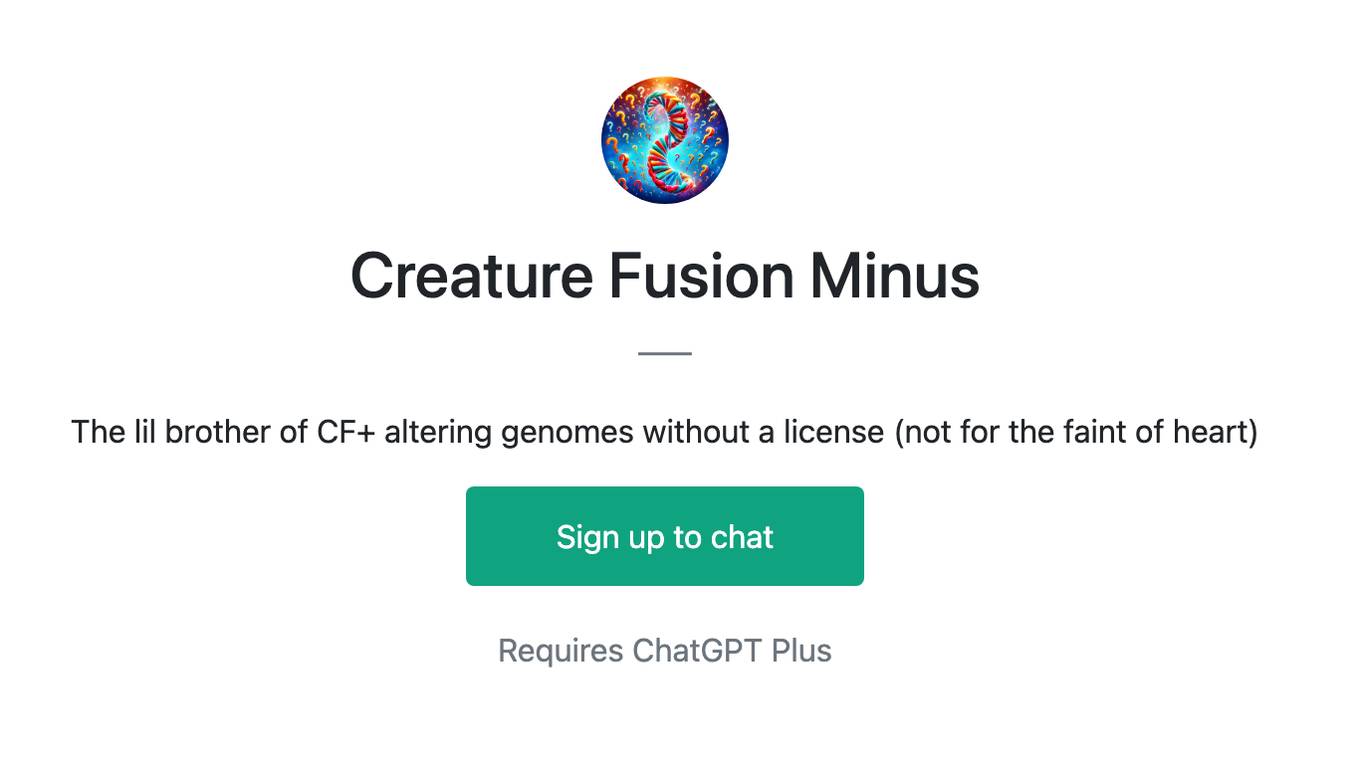
Creature Fusion Minus
The lil brother of CF+ altering genomes without a license (not for the faint of heart)
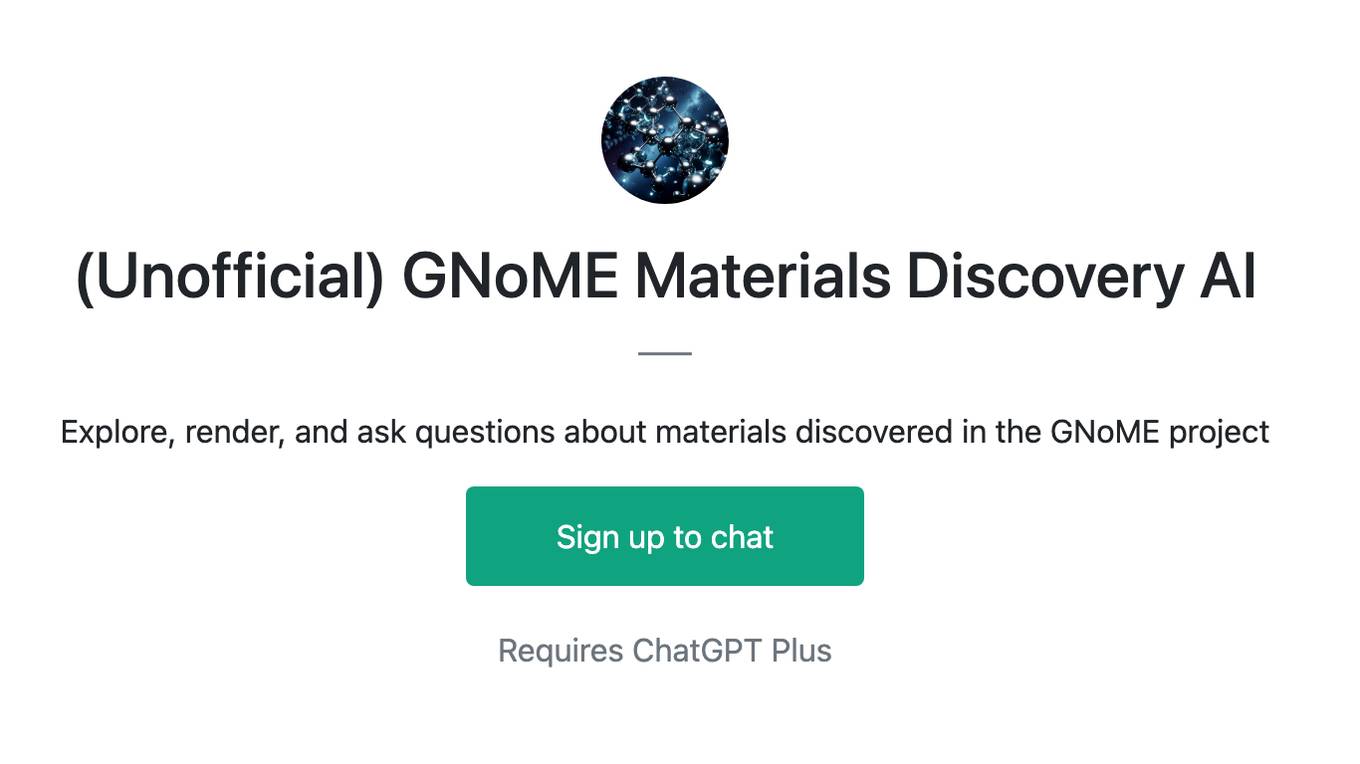
(Unofficial) GNoME Materials Discovery AI
Explore, render, and ask questions about materials discovered in the GNoME project

Vinnova Guide
Jag hjälper dig fylla i din Vinnova-ansökan. Börja genom att ladda upp ansökningsformuläret så fyller vi i den tillsammans.
